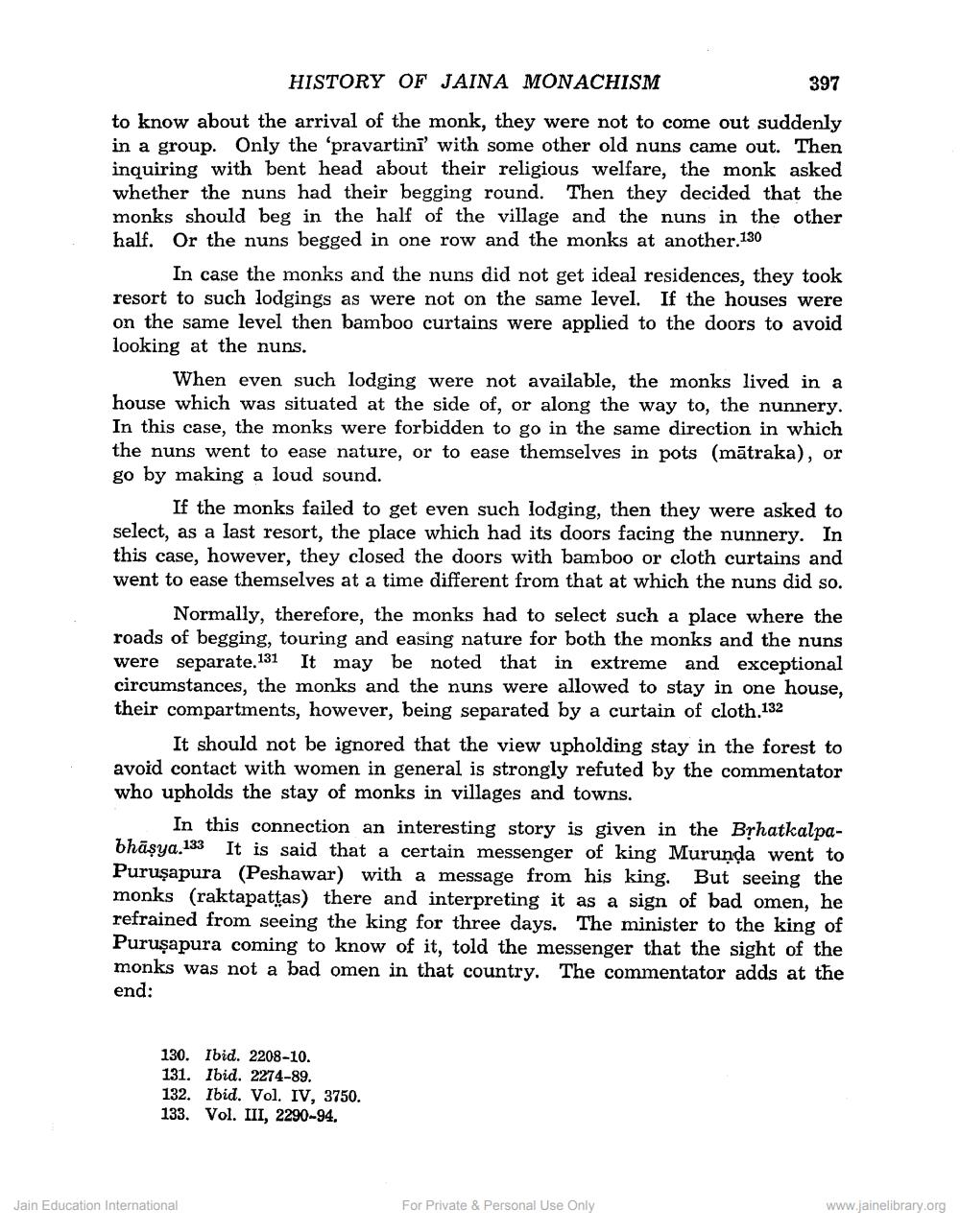________________
HISTORY OF JAINA MONACHISM
397
to know about the arrival of the monk, they were not to come out suddenly in a group. Only the 'pravartini' with some other old nuns came out. Then inquiring with bent head about their religious welfare, the monk asked whether the nuns had their begging round. Then they decided that the monks should beg in the half of the village and the nuns in the other half. Or the nuns begged in one row and the monks at another.130
In case the monks and the nuns did not get ideal residences, they took resort to such lodgings as were not on the same level. If the houses were on the same level then bamboo curtains were applied to the doors to avoid looking at the nuns.
When even such lodging were not available, the monks lived in a house which was situated at the side of, or along the way to, the nunnery. In this case, the monks were forbidden to go in the same direction in which the nuns went to ease nature, or to ease themselves in pots (mātraka), or go by making a loud sound.
If the monks failed to get even such lodging, then they were asked to select, as a last resort, the place which had its doors facing the nunnery. In this case, however, they closed the doors with bamboo or cloth curtains and went to ease themselves at a time different from that at which the nuns did so.
Normally, therefore, the monks had to select such a place where the roads of begging, touring and easing nature for both the monks and the nuns were separate 131 It may be noted that in extreme and exceptional circumstances, the monks and the nuns were allowed to stay in one house, their compartments, however, being separated by a curtain of cloth.132
It should not be ignored that the view upholding stay in the forest to avoid contact with women in general is strongly refuted by the commentator who upholds the stay of monks in villages and towns.
In this connection an interesting story is given in the Brhatkalpabhāşya 133 It is said that a certain messenger of king Murunda went to Puruşapura (Peshawar) with a message from his king. But seeing the monks (raktapattas) there and interpreting it as a sign of bad omen, he refrained from seeing the king for three days. The minister to the king of Puruşapura coming to know of it, told the messenger that the sight of the monks was not a bad omen in that country. The commentator adds at the end:
130. Ibid. 2208-10. 131. Ibid. 2274-89. 132. Ibid. Vol. IV, 3750. 133. Vol. III, 2290-94,
Jain Education International
For Private & Personal Use Only
www.jainelibrary.org




